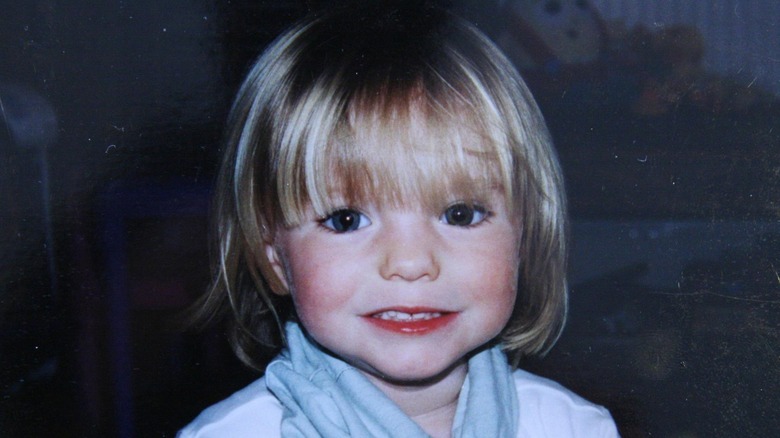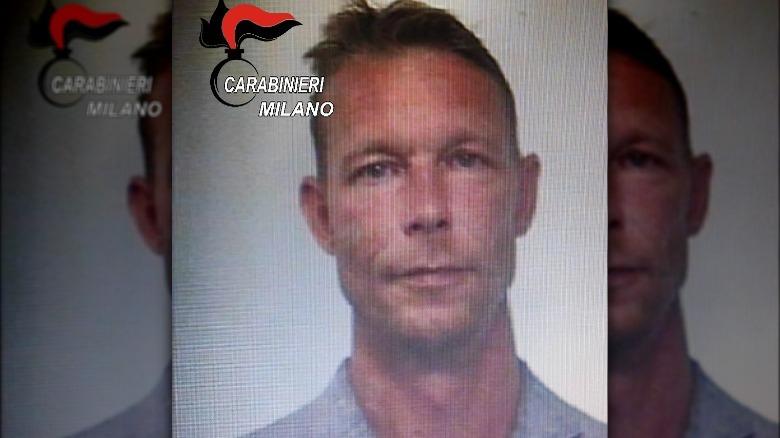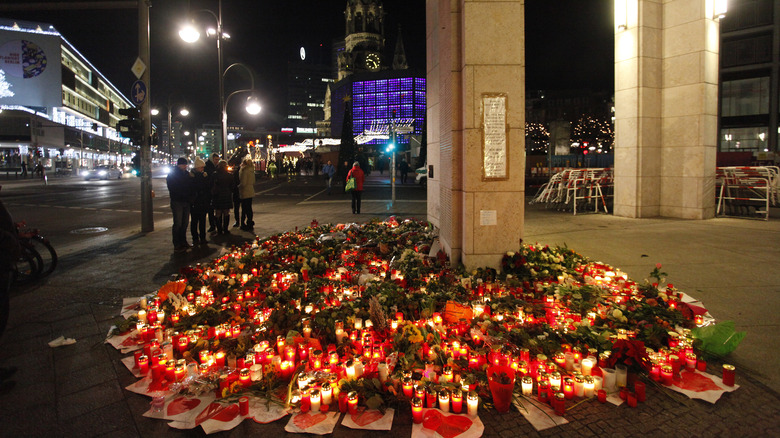Why Madeleine McCann Prime Suspect 'Christian B' Isn't Referred To By His Full Name
A German man suspected of involvement in the disappearance of Madeleine McCann had his identity concealed by German police due to strict national privacy laws. Christian Brueckner, whose full name was later leaked by the press, has previously been convicted of multiple sex offenses and other crimes (via the Daily Mail).
Under German law, those suspected of a crime are awarded some degree of privacy to protect their reputations in case they are innocent. Names released by the media are normally redacted to the first name and last initial. Brueckner became a suspect in the high-profile McCann case back in 2020. He has not yet been charged, but many are convinced of his guilt, and he may yet stand trial for McCann's disappearance. At present, he is serving a seven-year sentence for a rape he committed in Portugal back in 2005 (per the Daily Mail).
Some critics believe that German legislation wrongly protects criminals instead of the public, concealing the identities of dangerous individuals and repeat offenders.
If you or anyone you know has been a victim of sexual assault, help is available. Visit the Rape, Abuse & Incest National Network website or contact RAINN's National Helpline at 1-800-656-HOPE (4673).
Who is Christian Brueckner?
Christian Brueckner's arrest sparked a new round of controversy over privacy laws because his own list of past offenses is exceptionally long. According to a report in The Independent, he has at least 17 prior convictions to date.
Brueckner was first convicted of a serious offense as a juvenile in 1994 after he sexually abused a child (via the Daily Mail). He has also served several stints in prison for dealing drugs, possession of child pornography, and child molestation. In addition to various sexual and drug-related offenses, Brueckner has often been in trouble with the police for burglary. In 2005, Brueckner was intent on stealing from the resort where the McCanns lost their daughter; while there, he raped a 72-year-old woman and filmed the incident on camera.
Finally, this year Brueckner was charged with five more counts of rape and sexual assault in Portugal (via CBS News). The youngest of his alleged victims was just 10 years old when she was attacked on the beach.
If you or anyone you know has been a victim of sexual assault, help is available. Visit the Rape, Abuse & Incest National Network website or contact RAINN's National Helpline at 1-800-656-HOPE (4673).
Are Germany's privacy laws a good thing?
The Brueckner-McCann case is not the first to spark anger around Germany's privacy laws. Back in 2016, a truck driver deliberately drove through a crowd at a Christmas market in Berlin, killing 12 people. However, during the manhunt, the culprit's name was not released, and his photo was doctored to hide his eyes (via the Daily Mail).
In rare cases such as this, naming suspects can potentially help bring them to justice. However, others argue that we simply have the right to know, regardless. In January 2022, The Jerusalem Post ran a story complaining that Germans standing trial for Nazi war crimes in recent years were not named. The paper argued that very serious crimes — such as those related to the holocaust — are a matter of public interest, especially in cases in which a potentially guilty defendant is likely to never get convicted.
On the other hand, there is often an element of self-interest involved when journalists argue for lax privacy laws. Papers regularly profit from selling the details of shocking crimes to the public. Particularly in the case of sex crimes, those accused often have their names dragged through the mud, whether they are guilty or not. Some people — such as the famous British pop singer Cliff Richard, who was hounded for alleged sex crimes — argue that privacy laws protect the innocent (via The Guardian).
If you or anyone you know has been a victim of sexual assault, help is available. Visit the Rape, Abuse & Incest National Network website or contact RAINN's National Helpline at 1-800-656-HOPE (4673).


